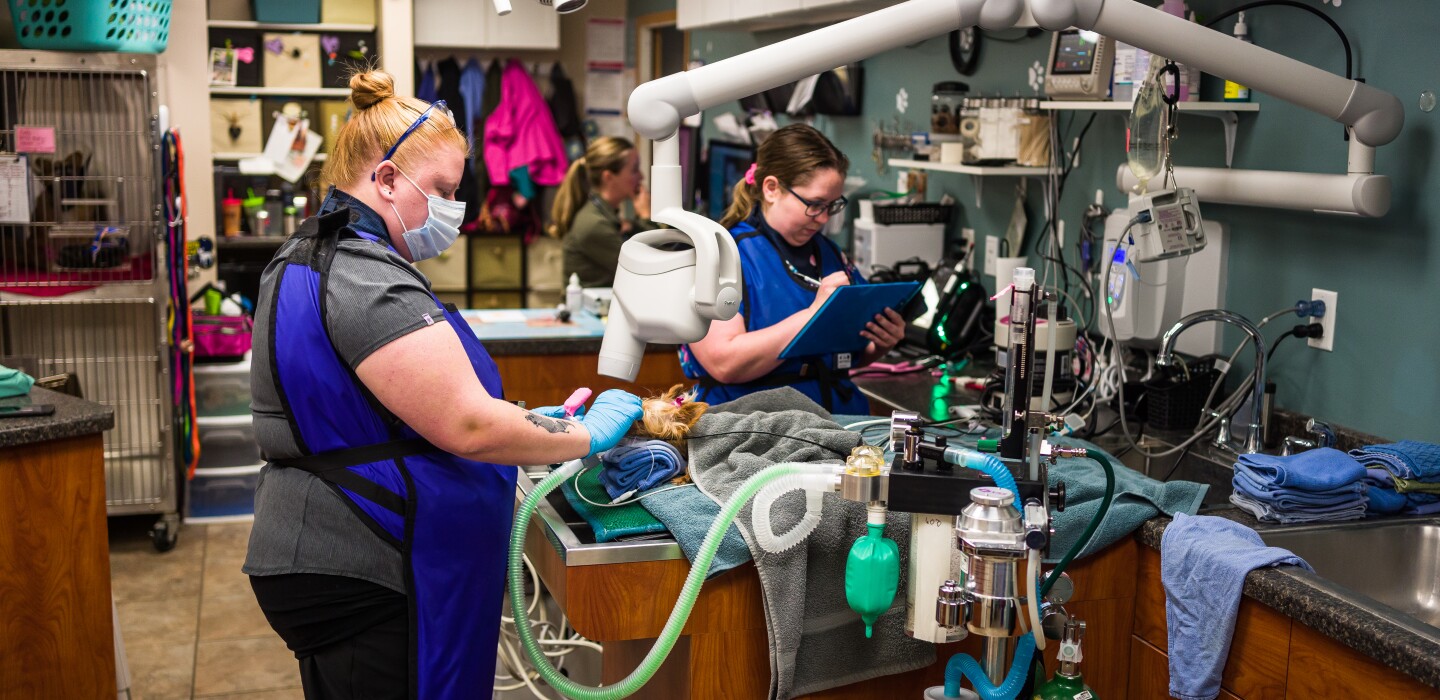- May 7, 2022
- No Comment
- 6 minutes read
Rochester veterinarian makes plea for understanding, civility – Rochester Post Bulletin

ADVERTISEMENT
ADVERTISEMENT
Rochester veterinarian Dr. Christine Vogel thought it was time to speak up.
It wasn’t just the incivility and bad behavior that vet techs and receptionists at veterinary clinics were dealing with from customers, it was the real harm that it was doing to the industry.
“What I joke about with a lot of people is essentially between social media and the notion that the customer is always right, we’ve basically become like Fight Club rules,” said Vogel, owner of Animal Health Care Veterinary Hospital in Rochester. “There are no rules.”
ALSO READ: CWD poses a real threat to deer and deer hunting
So, earlier this month, Vogel took to Facebook to issue a plea for a restoration of the rules for better behavior and accountability.
ADVERTISEMENT
“Until we let people know we as a community will not tolerate belittling and belligerent behavior, every customer service industry will continue to be understaffed and/or closed,” Vogel said in a post to the Facebook group called Spotted in Rochester .
Stories about angry or uncivil customers and people at school board meetings, restaurants and coffee shops have become commonplace in this pandemic era, but an understanding of the toll it has taken on the veterinarian industry is less understood. Vogel wanted people to understand that.
“Employees will only take mistreatment for so long before they quit … which is exactly what happened,” she said in her post. “A large portion of an already understaffed profession up and quit across the nation.”
There are reasons that the veterinary industry is uniquely vulnerable to the havoc wreaked by clients who can be rude, ungrateful, demanding. Even before the COVID-19 pandemic, veterinarians, vet technicians and staff already operated in a high-stress job with a high suicide rate. Most enter the profession motivated by a strong sense of empathy. But they often end up with a job of low pay and high demands.
Hospitals that treat humans are typically big enough to offer a high degree of specialization. Human hospitals boast billing, human resources and custodial departments. Doctors are supported by nurses and their support staff.
In a veterinary hospital, all those responsibilities fall under one roof and on a small staff.
ADVERTISEMENT
“We’re supposed to be doing everything, from your tooth fell out to your eyeball fell out to your spleen just exploded,” Vogel said, speaking about her animal patients. “We’re doing it (in) one tiny building. Whereas in the human industry, it’s, oh no, I only work on thumbs.”
Then the pandemic hit. And people, to combat the loneliness and ennui of being cooped up at home, turned to pets to alleviate the isolation. That, in turn, created an explosion in demand for veterinarian services at a time when clinics were already short-staffed.
Vogel dates the problematic and entitled behavior her staff began seeing even before the pandemic. Clients who would show up 20 minutes late for an appointment and begin screaming at the front desk for missing their time with the vet. Clients who bring in dogs that lunge at staff, yet a request to muzzle the animal is met with expletives by the owner.
“We’re bending over backwards to make things right for you,” Vogel said about late-arriving clients. “We’re trying, but it wasn’t our problem. We didn’t do it. You overscheduled yourself.”
Vogel said that within the last three years, her clinic has issued letters to as many as seven clients terminating their relationship with them because of bad behavior. That may not seem like a lot. But in 21 years as a veterinarian, that’s a big number for an action that was once rarely undertaken.
“People are used to and want instant service, and I can’t tell you the number of times I’ve told clients, ‘this is not Jiffy Lube or Domino’s,'” she said.
ADVERTISEMENT
Vogel said the crisis in the vet industry is reflected in the small batch of resumes she has on file. When she bought her practice in 2008, she would have 20-plus resumes to choose from when she needed to hire a vet tech. Today, the pool of qualified applicants has dried up. For the last two years, her clinic has advertised for a certified vet tech, yet the position has remained unfilled.
When asked what triggered her decision to make a public plea for understanding, Vogel tells the story of a hire she recently made. Unlike most applicants who post their resumes on the Internet, the woman hand-delivered hers. When Vogel asked why she had applied to her clinic, the woman said she was drawn to its mission statement — specifically, its mention of valuing and protecting employees.
“She said, ‘I have never seen that,’ and she goes, ‘at my current practice, I am abused on a regular basis, and I just have to take it,'” Vogel said.
ADVERTISEMENT
ADVERTISEMENT
ADVERTISEMENT

